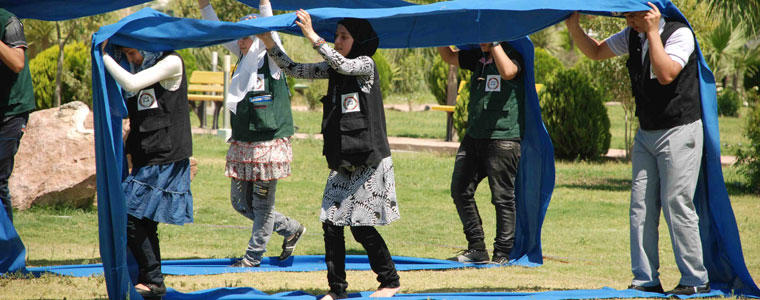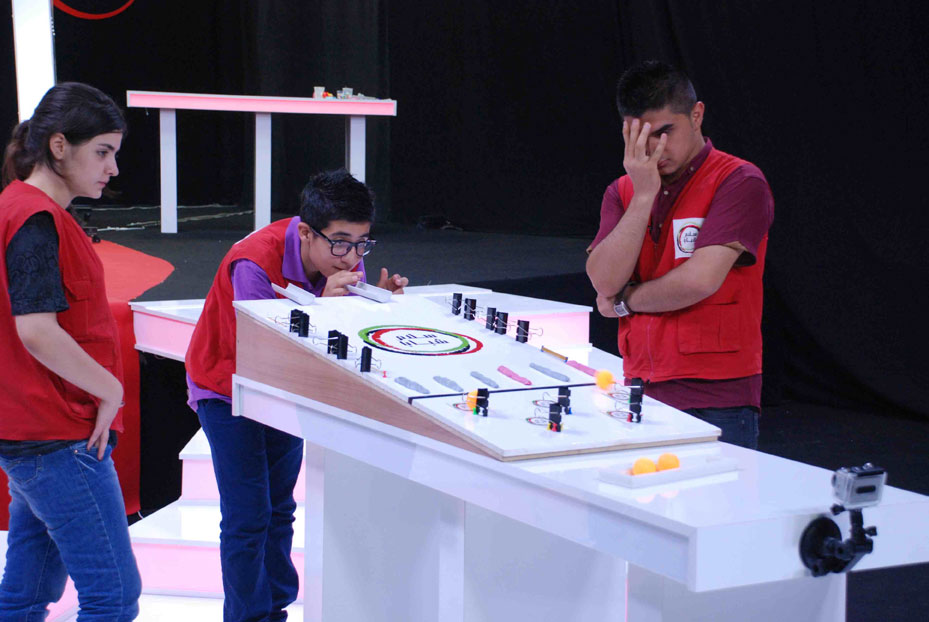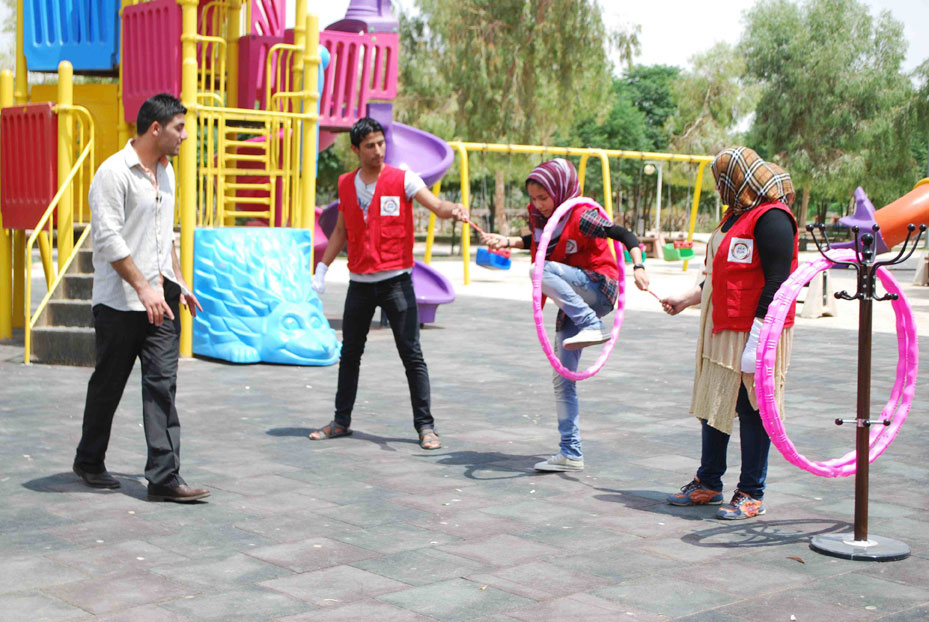An award-winning reality TV show for Iraqi youth called Salam Shabab (Peace Youth) will air its third season beginning October 5 on Alhurra-Iraq, even as awareness of the show’s potential spreads further in Egypt and Lebanon.

Salam Shabab melds an entertaining reality show with an educational program that seeks to empower Iraqi teens with the skills and values needed to become next-generation peacebuilders. Filmed by Iraqi producers with the support of USIP, the program brings together young Iraqis from all over the country to compete in a series of challenges (sport, mental, film and performance). During the course of a season, they learn respect for diversity, the importance of teamwork and self-confidence, and the imperative of taking civic action.
The third season will air at a time of increasing violence and instability in Iraq. Since Iraqi youth represent over half the country’s population, they inevitably will bear a large share of the burden in resolving conflict, and many have indicated a willingness to take on that responsibility.
 “I’m one of this program’s biggest fans and I want to be involved in everything it does – I want to help in every way possible,” said an online community member who goes by Ali. “I truly feel like I am an example of an Iraqi youth who wants to put all his energy into building our beloved country.”
“I’m one of this program’s biggest fans and I want to be involved in everything it does – I want to help in every way possible,” said an online community member who goes by Ali. “I truly feel like I am an example of an Iraqi youth who wants to put all his energy into building our beloved country.”
Iraqi youth could be mobilized in some of the same ways that their peers on the TV show were inspired. For example, a teenager from Kirkuk who participated in Season 2 of the TV show had experienced personal trauma when he witnessed the death of a family member in a bomb attack. After having dropped out of school, he was motivated enough by his interaction with youth on the TV show to renew his commitment to school.
One young man from Basra in Season 1 stood up in front of a visiting member of parliament during the filming and asked her outright “What are you doing for us?” The winning team from Season 3, consisting of three youth from different provinces, developed its own plan to host screenings of the broadcast for other youth in each of their local communities.
Meanwhile, a lively debate on peace and shared experiences of Iraqi youth has emerged on the burgeoning Salam Shabab online community, which includes a dedicated website (SalamShabab.com), a Facebook fan page, and a Twitter feed. With roughly 40,000 online fans and participants, a large part of the online experience is simply to increase the engagement among Iraqi youth from different backgrounds who would never have a chance to meet in person, modeling the interaction among diverse youth on the TV show. Additionally, many youth are discussing how to translate the lessons they learn online into offline action.
 Fatima, a Season 2 participant on the TV show, provided this example on SalamShabab.com:
Fatima, a Season 2 participant on the TV show, provided this example on SalamShabab.com:
“Before I was shy, no self-confidence, no knowledge of how to interact with people, hesitant in making decisions, scared, and not having any desire to achieve my aspirations, and most importantly, I didn't know how I personally could serve my country,” Fatima wrote. “When I saw the sportsmanship and friendship and cooperation in Salam Shabab, my way of speaking changed, my thoughts changed, and I realized talents that I didn't know I had, like acting, introducing myself to others, filmmaking, and being in charge of making my own decisions.”
She said the program gave her the motivation and confidence to reach for one of her goals, applying to an arts education school for girls.
“I don't hesitate anymore,” she wrote. “I can discuss things with people. I can lead. I can build peace.”
She continued: “Believe me, friends, peacebuilding is not just a word that we can write. It means really helping to build peace and respect and build discussion and peaceful cooperation.”
The energy of the Iraqi youth online has also helped the peacebuilding message resonate with peers in other conflict-affected countries in the region. The second-largest group of participants in the Salam Shabab online community, after Iraqis, consists of Egyptian youth. The Facebook fan page attracts youth from 43 countries, including from across the Arab world.
Similarly, Salam Shabab was recently featured as a success story at a digital media literacy course at the American University of Beirut. Sixty-six university students from 18 countries took part in the August training aimed at promoting media literacy for social change, and they identified Salam Shabab as a key online tool for peace advocacy.
This kind of consensus among young people from throughout the region indicates that the “edutainment” model that Salam Shabab represents could be effectively used in countries such as Tunisia, Libya, and Egypt, because each has a disproportionately large population of young people seeking to have their voices heard.
Executives of Middle East Broadcasting Networks Inc., which operates Alhurra TV and Radio Sawa across the region with funding from the U.S. government, have said the potential to expand the Salam Shabab television program regionally is high. In addition to millions of viewers in Iraq, the show will now be available to millions more around the region, Networks President Brian Conniff said in an e-mail.
“We are confident the show will resonate with viewers across the Middle East and North Africa, as they watch young Iraqis compete to become 'Ambassadors of Peace,' “ Conniff said. “The goal of the program is to empower the contestants to become accountable and participatory members of Iraqi society, and that is something everyone can relate to.”
Theo Dolan is a senior program officer in USIP’s Center of Innovation for Media, Conflict and Peacebuilding.



